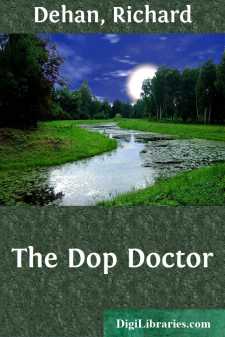Categories
- Antiques & Collectibles 13
- Architecture 36
- Art 48
- Bibles 22
- Biography & Autobiography 815
- Body, Mind & Spirit 144
- Business & Economics 28
- Children's Books 18
- Children's Fiction 14
- Computers 4
- Cooking 94
- Crafts & Hobbies 4
- Drama 346
- Education 58
- Family & Relationships 59
- Fiction 11834
- Games 19
- Gardening 17
- Health & Fitness 34
- History 1378
- House & Home 1
- Humor 147
- Juvenile Fiction 1873
- Juvenile Nonfiction 202
- Language Arts & Disciplines 89
- Law 16
- Literary Collections 686
- Literary Criticism 179
- Mathematics 13
- Medical 41
- Music 40
- Nature 179
- Non-Classifiable 1768
- Performing Arts 7
- Periodicals 1453
- Philosophy 65
- Photography 2
- Poetry 896
- Political Science 203
- Psychology 44
- Reference 154
- Religion 515
- Science 126
- Self-Help 85
- Social Science 83
- Sports & Recreation 34
- Study Aids 3
- Technology & Engineering 59
- Transportation 23
- Travel 463
- True Crime 29
Our website is made possible by displaying online advertisements to our visitors.
Please consider supporting us by disabling your ad blocker.
The Dop Doctor
by: Richard Dehan
Description:
Excerpt
Upon a day near the end of August, one long, brilliant South African winter, when the old Vierkleur waved over the Transvaal, and what is now the Orange River Colony was the Orange Free State, with the Dutch canton still showing on the staff-head corner of its tribarred flag, two large, heavily-laden waggons rolled over the grass-veld, only now thinking about changing from yellow into green. Many years previously the wheels of the old voortrekkers had passed that way, bringing from Cape Colony, with the household gods, goods and chattels, language and customs of the Dutch, the slips of the pomegranate and peach and orange trees, whose abundant blossoming dressed the orchards of the farms tucked away here and there in the lap of the veld, with bridal white and pink, and hung their girdling pomegranate hedges with stars of ruby red. But days and days, and nights and nights of billowing, spreading, lonely sky-arched veld intervened between each homestead.
The flat-topped bills were draped and folded in the opal haze of distance; the sky was perfect turquoise; the rounded kopjes shone like pink topaz, unclothed as yet with the young pale green bush. To the south there was a veld fire leaping and dancing, with swirling columns of white smoke edged with flame. But it was many miles away, and the north-west wind blew strongly, driving some puffs of gold cloud before it. Perhaps there would be rain ere long. There had been rain already in the foremost waggon, not from the clouds, but from human eyes.
The broad wheels crashed on, rolling over the yellow grass and the dry bushes. Lizards and other creeping creatures scuttled across their wide tracks. The patient oxen toiled under the yoke, their dappled nostrils widespread, their great dewy eyes strained and dim with weariness. They dumbly wondered why they must labour in the daytime when all night long they had travelled without rest. The glorious sunrise had flamed in crimson and gold behind the eastern ranges full five hours before. They were weary to death, and no dorp or farm was yet in sight. The Cape boys who tramped, each leading a fore-ox by the green reim bound about the creature's wide horns, had no energy left even to swear at their beasts.
The Boer driver was wearied like the ox-team and the Cape boys. His bestial face was drawn, and his eyes were red-rimmed for lack of sleep. The long whip, with the fourteen-foot stock and the lash of twenty-three feet, had not smacked for a long time; the sjambok had not been used upon the long-suffering wheelers. Huddled up in his ill-fitting clothes of tan cord, he sat on the waggon-box and slept, his head nodding, his elbows on his knees. He was dreaming of the bad Cape brandy that had been in the bottle, and would be, with luck, again, when the waggon reached a tavern or a store.
A Kaffir drove the second waggon. It held stores and goods in bales, and some trunks and other baggage belonging to the Englishman, for you would have set down the tall, thin, high-featured, reddish-bearded, soft-speaking man who owned the waggons as English, even though he had called himself by a Dutch name. The child of three years was his. And his had been the dead body of the woman lying on the waggon-bed, covered with a new white sheet, with a stillborn boy baby lying on her breast.
For this the man who had loved and taken her, and made her his, had wept such bitter, scalding tears. For this his dead love, with Love's blighted bud of fruit upon her bosom, had given up her world, her friends, her family—her husband, first and last of all. They had played the straight game, and gone away openly together, to the immense scandal of Society that is so willing to wink at things done cleverly under the rose. They were to be married the instant the injured husband obtained his decree absolute. The State sanctioned the re-marriage of the divorced if the Churches did not. Their church should thenceforwards be the State. But there was no decree nisi even, the injured husband possessing a legal heir by a previously-deceased wife....


